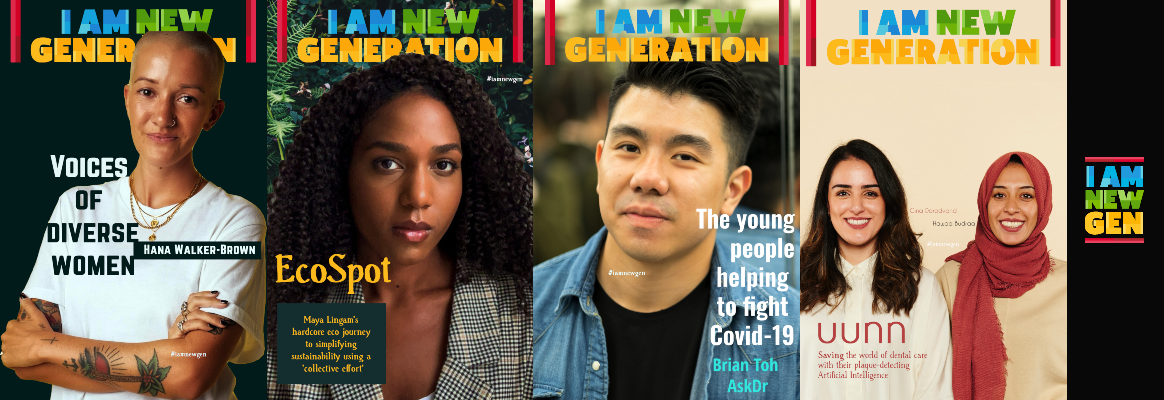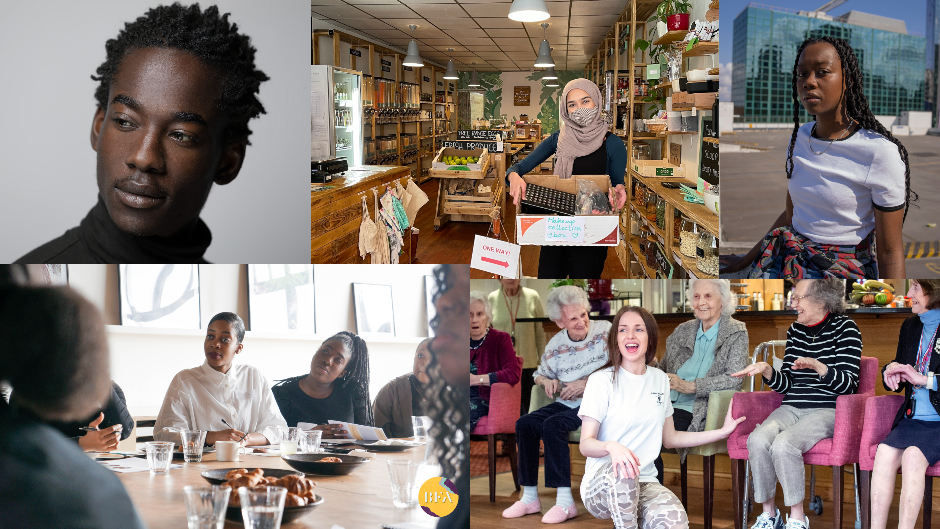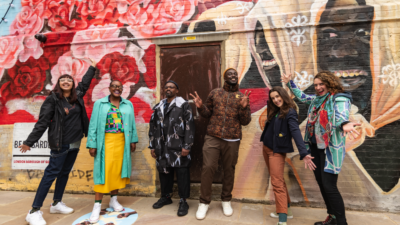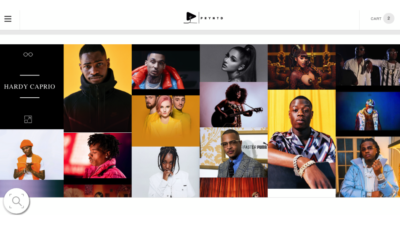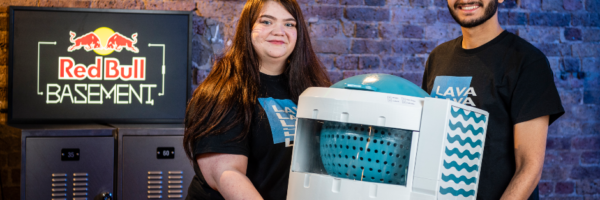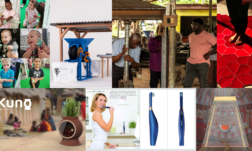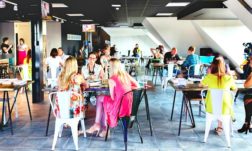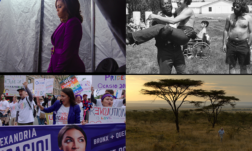The Deutsche Bank Awards for Creative Entrepreneurs (DBACE) 2021 announces five young creative winners of its collective prize fund of £60,000 and a £100,000 business mentorship – to grow their social impact vision.
In partnership with MeWe360 – a not-for–profit incubator for the creative industries – the Deutsche Bank Awards for Creative Entrepreneurs (DBACE) invests in the UK’s young entrepreneurs driving positive social change through creative enterprise.
DBACE provides young talent, aged 18-30, with start-up capital, bespoke business support, and expert mentors.
The winning five young creative change-makers creating positive social impact within their creative enterprises share their story with us:
Charlie Blair, Founder of the Blair Academy
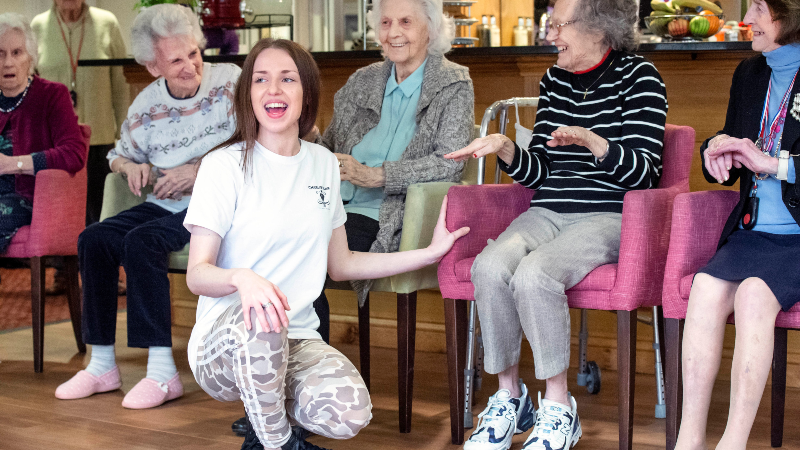
What is the business about
The Blair Academy is a social enterprise, which uses Hip Hop dance to boost Health and Happiness in Care and Community settings.
We envisage a world where Hip Hop brings Health, Happiness and Well-being to the lives of many so that we can combat Loneliness, improve/ prevent the deterioration of physical andmental health, and bridge social and generational gaps.
When was it launched
We launched in June 2018 and since then, we’ve engaged over 5000 people. We have three participants over 100 years old.
What inspired the idea
The business is a culmination of my professional and personal experiences as a dancer, homeless teenager and carer for the elderly. Following a childhood tarnished with domestic violence, at 19, I was living alone in a YMCA hostel.
It was one of the most isolating points of my existence. My saving grace was the dance studio that I could sneak into at night as a form of release.
In March 2017, whilst in my final year at University, my nan was diagnosed with stage 4 cancer. As a part of her treatment, she was given an exercise programme to follow. She despised it, so I took foundation Hip Hop steps and adapted them so that they could be performed in a wheelchair or an armchair.
I had reservations about my 67-year-old, terminally ill nan engaging in a Hip-Hop dance class, but she did, repeatedly and loved it. This encouraged me to call care homes in my local area and offer their residents a class.
How was the business built
At first, it was just me trawling through google trying to find relevant contacts at care homes but now we’ve grown the team so that there are seven of us involved in reaching and delivering to new clients.
We always offer a free trial session, and to date, everyone we’ve delivered to has become a client. We’ve also been lucky to have amazing clients refer us to other organisations which have grown the business.
Building a creative social impact business – what social change do you want to see take place
I’ve found it incredibly powerful to transform my difficult life experiences into a business which positively impacts a multitude of vulnerable people.
In the dance industry, there is the need for more inclusion and making dance accessible to a wider range of people.
Also, in the care industry, our innovative intergenerational approach is a great way to reach people who have historically been difficult to engage.
Our sessions create opportunities for older adults to reminisce whilst socially connecting and learning something totally new.
Challenges faced
For a long time, the entrepreneurial journey was alonely one for me, which felt strange given that we combat loneliness.
It’s amazing to now have a team, and also be connected with like-minded social entrepreneurs.
As with many businesses, COVID-19 presented a number of challenges for us. We were forced to quickly improve our offering to deliver virtual sessions to our clients.
We also produced DVDs for over 300 care homes across the UK who are digitally excluded, during the pandemic.
Getting to grips with these new ways of working actually allowed us to reach new geographical markets and expand our business. Now we have more bookings and enquiries than before the pandemic, which is such a blessing.
Using the awarded DBACE funding – £10.5k
The funding from DBACE has allowed us to get ideas that have been spoken about for a while into fruition.
We’re using the majority of the money to launch our new online subscription service so that the care homes we work with can access high quality content beyond our classes to keep their residents active, engaged and entertained.
We’re using some of our funding to exhibit our new platform at the Care, Nursing and Dementia Expo in Birmingham in September which is super exciting.
What does the future hold
Worldwide domination! Hip Hop is a prominent part of many cultures worldwide now and we’d love to spearhead the movement of using it to holistically improve the health and wellbeing of many more people.
Jameisha Prescod, Founder of You Look Okay To Me
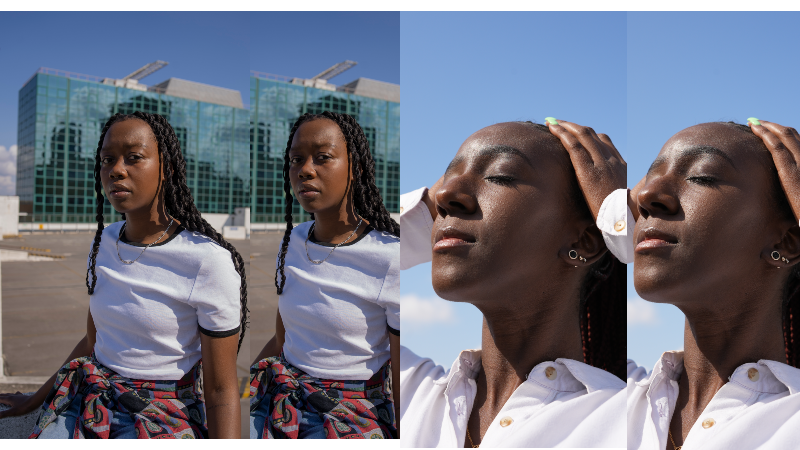
What is the business about
I will be launching You Look Okay To Me, a documentary production company that platforms human stories about chronic illness, disability, culture and identity.
My enterprise will produce both visual and audio documentary content in the forms of digital video pieces, branded films and creative investigative podcasts.
When was it launched
As an official documentary production company, my business is technically pre-launch. I am working on formalising the business and financial plan. As a concept, You Look Okay To Me was launched and developed from 2016.
What inspired the idea
The idea was inspired by my own personal experience. I was diagnosed with an autoimmune disease called Lupus in 2014 while studying film production at university.
This made it incredibly difficult to keep up with my studies and immerse myself in the film industry in the same way that my able bodied peers could. I set up You Look Okay To Me as a way to use the skills I gained in film and audio production to focus my artistic practice around the theme of illness.
My work for You Look Okay To Me made me aware of a collective silence about invisible long-term conditions that needed to be addressed.
How was the business built
The business was first built by increasing brand awareness.I started producing online visual content and connecting with the chronic illness community online. The audience was able to grow to over 24K people on Instagram and 1K on YouTube and Facebook.
This growth got the attention of brands, charities and other production companies to collaborate and produce content with. Since my businessis pre-launch, I’m still in the building and growth phase to establish it as an official production company.
Building a creative social impact business – what social change do you want to see take place
I have an interest in building a creative, and socially impactful, businesses because I want to make a difference in the world with my work.
The best way I know how to do this is through visual creativity. People living with chronic illnesses not only face challenges with the symptoms they deal with, but they also deal with social barriers.
I want to use my work to draw more attention to these issues and hopefully change the way we talk about illness. I also want my work to address the lack of representation of diverse chronic illness stories in the media.
This under representation is especially present when these stories intersect with race, gender identity and sexual orientation.
Challenges faced
One of the main challenges I face is being able to grow my business while still making it accessible to me. Having a chronic condition makes it difficult to keep up with some of the day to day responsibilities a business needs.
Prior to DBACE, I was solely funding my business through my full time job. I’m trying my best to run a successful business while being mindful of my health.
Using the awarded DBACE funding – £10k
The funding from DBACE will first allow me to finance some of the creative programmes and services needed to run a production company e.g editing software, transcription software etc.
It will also support me with the fees associated with registering the business and intellectual property. Additionally, it will assist with getting an accountant, marketing and any educational courses that will improve my business and management skills.
What does the future hold
The establishment of a sustainable successful production company with a commitment to represent illness, disability and identity.
In the future I will be able to commit myself full time to my business. The business will produce content that makes a difference in the way we perceive illness both in the medical world and within specific communities.
Neba Sere, Selasi Setufe and Akua Danso, Co-Directors of Black Females in Architecture
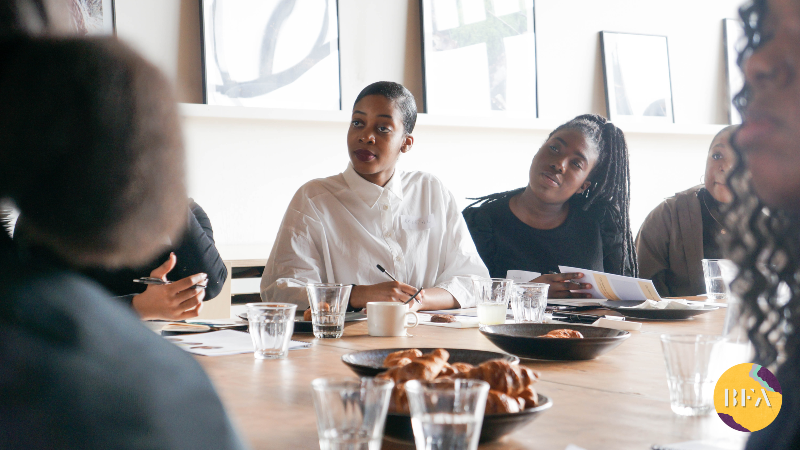
What is the business about
Black Females in Architecture (BFA) is a social enterprise and global membership organisation with almost 400 members.
We advocate for diversity, race and gender equity in the Architecture, Design & Construction industries by highlighting our members and their work.
We’re the only community based platform in the UK connecting black female members to potential clients who seek access to architecture & design services from black women.
When was it launched
BFA began as a WhatsApp group chat in April 2018 and went on to register as a company in March 2019.
What inspired the idea
Having realised that we had unintentionally created a much needed space and support system for black women in our industry, we were inspired by the opportunity to make a change through the power of our collective voice and efforts.
How was the business built
The BFA community is at the heart of the organisation.We grew organically from a group chat created simply to allow a group of like minded black women to connect with each other.
The original members of the group chat set about planning, strategising and formalising BFA into an organisation.
Having registered the business, the original members enlisted the help of several members from the wider membership and formed the BFA Team who have since worked together to grow the community and the business.
BFA has since developed into an accessible space for black women within the industry and provides a means of connecting and supporting each other – a safe space and a movement through which we can create more opportunities for us and deliver social value to our industry and the general public.
Building a creative social impact business – what social change do you want to see take place
Everything we have done, continue to do and hope to do is centred around community for black women in the built design and environment industries.
We strive to not only develop this community but also ensure that we make room for ourselves within our industry, as a means of making the cities, homes, places of work and play we engage with everyday more inclusive, diverse and equitable.
Challenges faced
BFA has operated as a voluntary organisation since its inception and while we’ve managed to build the business to this point through the dedication and commitment of an amazing team, it has required a lot of unremunerated sacrifice from all of us.
Creating a sustainable business is essential if we are to continue and grow the work we do.
Using the awarded DBACE funding – £15k
The DBACE funding is the first significant injection of funds BFA has received since its inception. The money will help fund the crucial next steps necessary for us to develop a more sustainable business capable of better supporting the BFA community.
Through the creation of a new digital platform, we aim to connect our BFA members with each other and bring the talents and professional services of black women from the design, construction and architecture industries closer to end users.
What does the future hold
The future holds countless opportunities for us to continue to support BFA members in bigger and better ways.
We strongly believe that in a world where the places and spaces we inhabit are diverse in culture, purpose, aesthetic and accessibility, the people who shape our spaces and places should also be equally diverse.
We hope to increase the visibility of black women not only within our industry but also amongst other global industries and the general public and in so doing help to ensure we create more opportunities to shape the built and natural environment that we live, work and play in.
Nahum McLean, Founder of African Diaspora Dance Association (ADDA)
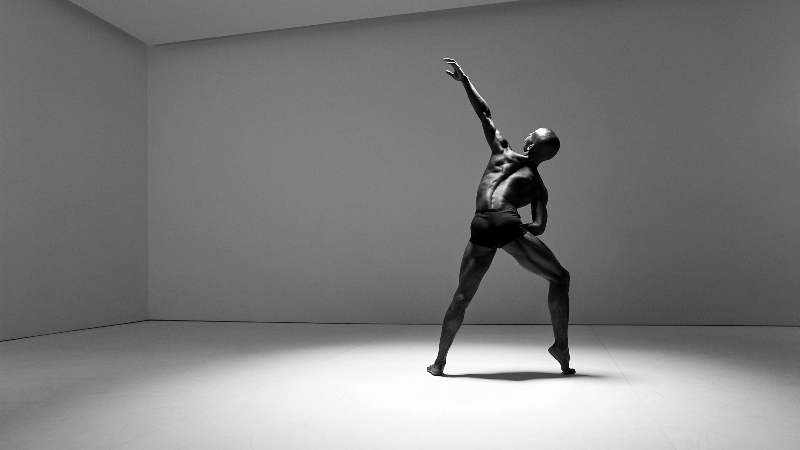
What is the business about
ADDA, African Diaspora Dance Association is the first dance examination board to specialise and accredit dance styles that fall under the African Diaspora.
ADDA connects the dots between the history of West African dance, through the ages, to the modern day.
Using West African, African-American, and Black British history as a source of movement, the dance community will have the opportunity to understand the importance of learning the cultural lineage responsible for the social dances and cultures that we enjoy and practice today.
When was it launched
ADDA was created in June 2020 and was launched in September 2020 with our Primary school program Every ADDA Step, where we teach children with special educational needs, mental health and disabilities, valuable life skills through dance classes, creativity and music.
What inspired the idea
ADDA was inspired by the need for change within the dance education sector. Currently, there’s a huge imbalance in diversity within the student body, the faculty body, and within the curriculum content.
ADDA was formed to bridge this gap and create a more inclusive environment for dance schools and universities, as well as round off the many aspects of dance training that are currently being overlooked within many institutions.
Building a creative social impact business – what social change do you want to see take place
ADDA was something that I saw was needed to resolve many of the issues the dance education sector has been facing.
Many dance education institutions in the UK offer limited curriculum content and accessibility to dance styles, such as with the prioritising of Classical Ballet and Modern Dance, the foundational training of which is not widely available to a variety of
communities. This leaves ethnic minority communities, as well as working class communities, excluded from a higher level of dance training.
I feel ADDA can be the catalyst for change and will offer a solution to the many imbalances that we are currently facing.
Challenges faced
The biggest challenge within this venture, has initially been funding, to have the idea, the infrastructure, and to set goals, but not having the funding to go ahead, has been difficult.
Now that we’ve received some funding, I am sure many other challenges will present themselves, but that’s just the nature of being an entrepreneur.
Using the awarded DBACE funding – £16k
The DBACE Funding will go directly into the development of the ADDA Curriculum. With the award, we are able to build our team of founding practitioners and complete the first phase of our curriculum development.
Along with the DBACE funding, we also received 1 year of business support from MeWe360, which is goingto play a big role in the development of our organisation.
What does the future hold
I see a bright future for ADDA, and the world of dance. ADDA has the potential to revolutionise the dance world and create a whole new generation of dancers within the UK and beyond.
If in years to come, dance schools and universities are a melting pot of people, styles and cultures where students have access to West African Dances, Funk Styles along with Ballet, Modern Dance and South Asian Dances, I truly believe the social impact will be immeasurable.
This will, in turn, open up avenues for diversity and inclusivity beyond the world of dance.
Ameenah Begum, Founder of Cos Colours
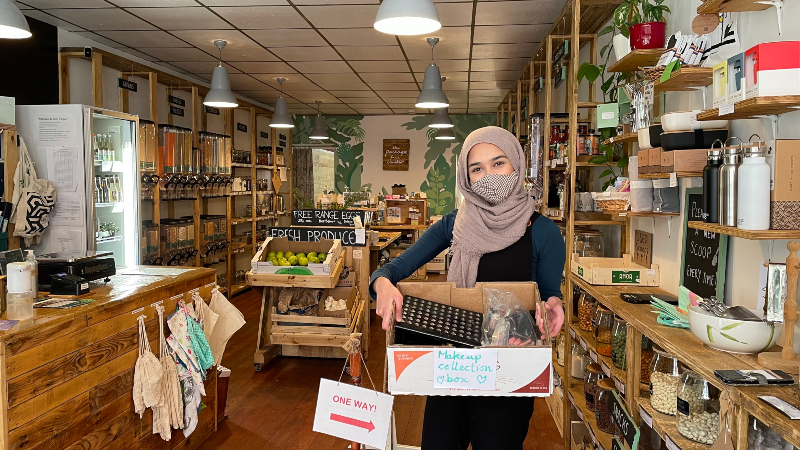
What is the business about
Cos Colours, the planet friendly paint is all about creating zero waste, handmade, watercolour paints made from upcycled waste cosmetics to create a unique painting experience suitable for artists of all abilities.
We want to show retailers that consumers are willing to go the extra mile to find products that benefit our planet and provide artists with the means to spread an environmental message louder than any words could reach to help save the world, one brushstroke at a time.
When was it launched
Although the idea started in my final year of university, product sales began in 2019.
What inspired the idea
It started with a smashed foundation bottle. After becoming frustrated by how much makeup we often waste because of impractical packaging, I spent my final year at university looking to design a product that would allow you to make the most of your makeup before considering disposal.
I later discovered that this was part of a much larger cosmetic waste problem that needed to be tackled on a far bigger scale.
So I decided to combine my skills in design with my passion for art and sustainability to give as many people as possible the means to spread an environmental message and help to make a positive difference in the world.
How was the business built
After a lot of experimentation, and once I knew that this watercolour paint could be used by artists of all abilities, I decided to put out a call for donations of unwanted makeup.
I began the process of making these beautiful planet-friendly paints for more than just me and my own artwork.
The enthusiasm for this creation is still very much alive and that support is what has encouraged me to continue to build this business into something more than just a hobby, or project, but rather something that could help to save the world.
Building a creative social impact business – what social change do you want to see take place
Our current linear economy needs to be changed and I believe a circular economy is the way forward for all businesses that want to survive in an ever evolving world.
This business is just one example of how we can work within a circular economy to benefit our environment and encourage a positive shift in behaviour from businesses. The general public wanting to do their part also now have a means to get involved by donating their waste makeup, avoiding landfills and incinerators.
People want change, this is just giving the everyday person the means to do so, whilst encouraging others to think of more small creative initiatives that collectively can make a huge difference to the health of our planet.
I want to see more businesses wanting to tackle waste in any industry they belong to, to create a new life from rubbish.
Challenges faced
A large part of this business is dependent on the consistency of colour cosmetic waste received, prior to formulating a product.
This is why I’m excited to receive this award, so that I can start to focus on increasing production. Being a sole founder also has its challenges, as business isn’t something I studied but instead fell into after riding the wave of public enthusiasm.
It’s a challenging but exciting journey where I’m learning something new everyday about both running a business but also in developing my own skills around public speaking, time management, delegation,design, logistics and so much more.
Using the awarded DBACE funding – £8.5k
Winning DBACE has given me the increased credibility needed to approach retailers and businesses to get involved with this initiative so that we can amplify the positive environmental impacts of this circular economy project.
The funding will also help to create more products so that we can get these eco watercolour paints in the hands of more artists, more often. I also hope to provide others interested in getting involved the opportunities to do so on a practical level.
What does the future hold
More art, collaborations and less waste.
Images Copyright – DBACE
More Stories
